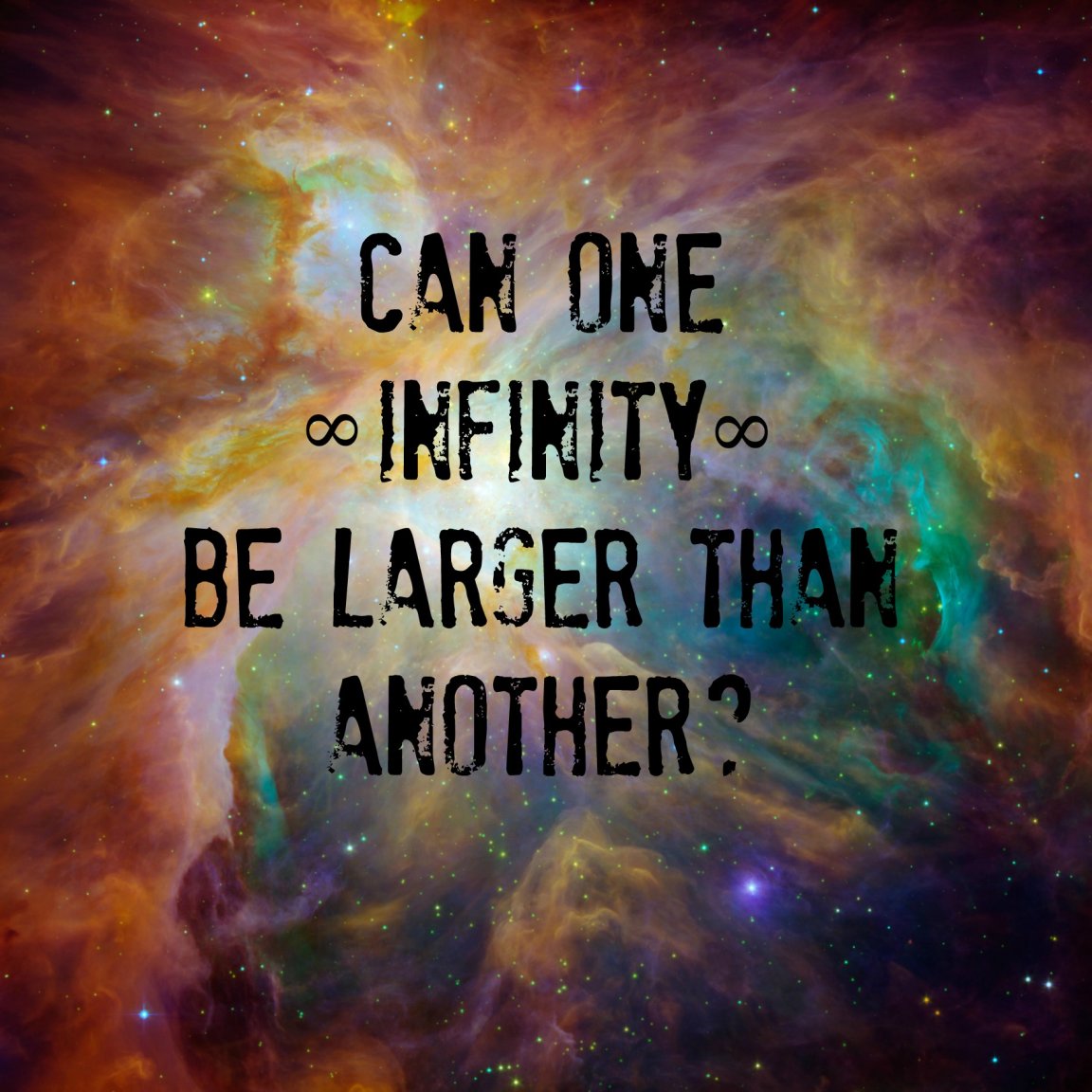

The correct technical definition of infinity is that it is equal to some of its parts. For example, both the set of all real numbers and the set of all even numbers have infinite elements, yet it is clear that there are more real numbers than there are even numbers.
The most famous paradox regarding infinity is likely Hilbert’s paradox of the Grand Hotel. The paradox presents us with a hotel with an infinite number of rooms with an infinite number of guests. Another guest arrives, so the hotel owner asks the guest in room number one to move to room number two, and the guest in room number two to move in number three, and so on, allowing the new arrival to move into room number one. The paradox states that you can still fit another infinite number of guests in the hotel because of the infinite number of rooms. If the rooms were full, then there is a last room, which means that the number of rooms is countable.
To solve this paradox, we must first make it clear that infinity is not a number. To prove that, we start with an equation: [latex]frac{1}{infty}=0[/latex].
I am sure that this is something that we can all agree on. Simple logic dictates that one divided by a very, very large number will be zero. But wait, what if we write: [latex]frac{2}{infty}=0[/latex]?
That equation will still be correct, but if we use the transitive property of equality, we can make it appear as though 2 = 1. We can do the same for all four mathematical operations, therefore, we can conclude that infinity is really not a number.
We can see that the Hilbert’s hotel paradox is just nothing but a simple mathematical manipulation of infinity as a number.


Infinity plus 1 is still infinity. That is why it appears that the number of guests is still equal to the number of rooms. We can also do the same with an addition of an infinite number of guests since infinity plus infinity is still infinity.
Another paradox is from the infinite geometric progression 1+2+4+8+…. Intuitively, we can say that this will equal infinity. The paradox comes from the fact that we can “prove” that infinity is equal to -1 from this infinite progression by simple mathematical manipulation.




Everything on the left side will cancel out leaving us:

We can also disprove this by making the same argument that we used on the first example.
The last paradox that we will discuss is concerning that of a dartboard whose area is infinitely large. For any dartboard, the chance of hitting a certain point is nonzero, assuming that the dart will always hit the dartboard. If we have an infinitely large dartboard, there are infinitely many points that the dart can hit and if the probability of hitting one point is nonzero, then we would have a total probability of more than one (a probability of one means that one event will always happen; all probabilities are equal to or less than one).
If we try to look at this closely, this is also a product of mathematical operations on infinity. The probability of hitting a specific point on the dartboard can be written as:

If we have the area of the dartboard equal to infinity, then the probability will be zero, which we know that cannot be true, since the dart always hits the dartboard. This is just the same with our first proof that infinity is not a number.
It is said that infinity is where mathematics and philosophy meet. There is more to infinity than just a concept we use in mathematics, as this article from NOVA says: “To do anything with the physical world—that is, physics, chemistry—you have to use the tools of infinity.”
Finally, here is a minutephysics video discussing whether some infinities are larger than other infinities.
